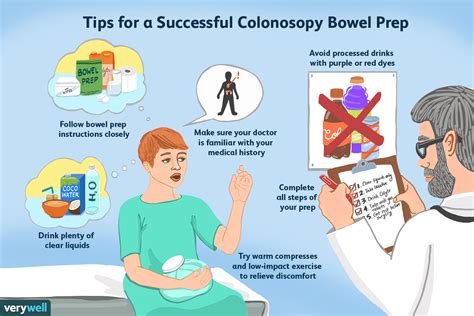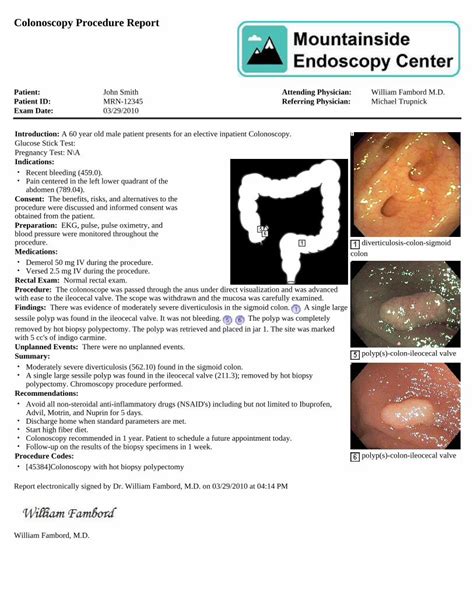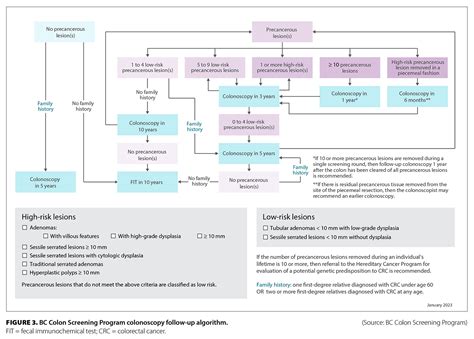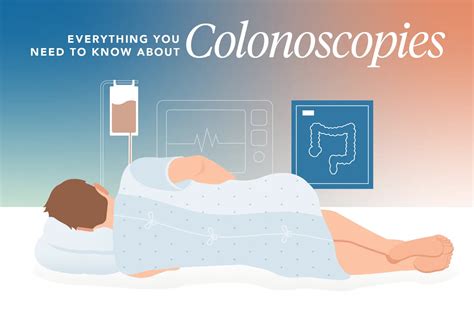Intro
Master colonoscopy prep with 5 essential tips, including bowel prep, dietary changes, and hydration advice, to ensure a smooth and successful colon cancer screening procedure, improving colon health and reducing risks.
Preparing for a colonoscopy can be a daunting task, but with the right guidance, it can be a straightforward process. A colonoscopy is a vital screening test for colon cancer and other gastrointestinal issues, and proper preparation is essential for accurate results. In this article, we will delve into the importance of colonoscopy preparation, its benefits, and provide valuable tips to help you prepare for the procedure.
A colonoscopy is a procedure that allows your doctor to visually examine the inside of your colon and rectum for any abnormalities, such as polyps or cancer. The procedure involves inserting a flexible tube with a camera and light on the end into the rectum, which provides a clear view of the colon. To ensure that the colon is clear of any debris or fecal matter, patients are required to follow a strict preparation regimen. This preparation is crucial for accurate results, as any remaining fecal matter can obscure the doctor's view and lead to inaccurate diagnoses.
The benefits of colonoscopy preparation extend beyond the procedure itself. A clean colon can help reduce the risk of complications during the procedure, such as perforation or bleeding. Additionally, a well-prepared colon can increase the chances of detecting any abnormalities, including cancer, at an early stage. Early detection is critical for effective treatment and improved outcomes. With the right preparation, patients can feel more confident and prepared for the procedure, reducing anxiety and stress.
Understanding Colonoscopy Preparation

Importance of Dietary Changes
Dietary changes play a crucial role in colonoscopy preparation. Patients are typically advised to follow a low-fiber diet for a few days before the procedure, which includes avoiding foods such as nuts, seeds, and whole grains. This helps reduce the amount of fecal matter in the colon, making it easier to clean. Additionally, patients may be advised to avoid certain foods, such as red meat, which can make the colonoscopy more challenging.5 Colonoscopy Prep Tips

- Start preparing early: Begin preparing for your colonoscopy at least a week in advance. This will give you time to make the necessary dietary changes and arrange for any necessary medications or supplies.
- Follow a low-fiber diet: Avoid foods that are high in fiber, such as whole grains, nuts, and seeds, for at least three days before the procedure. This will help reduce the amount of fecal matter in your colon.
- Stay hydrated: Drink plenty of water and clear liquids, such as broth or electrolyte-rich beverages, to help flush out your system. Aim to drink at least eight glasses of fluid per day.
- Use laxatives as directed: Your doctor may prescribe laxatives to help clear your colon. Be sure to follow the instructions carefully and take the laxatives as directed.
- Plan for bowel preparation: The day before the procedure, you'll need to follow a bowel preparation regimen, which typically involves taking a laxative or other medication to clear your colon. Be sure to plan ahead and make arrangements for any necessary supplies or support.
Additional Tips and Considerations
In addition to these tips, there are several other factors to consider when preparing for a colonoscopy. These include:- Arranging for transportation: You'll need to arrange for someone to drive you home after the procedure, as you may be sedated or feeling uncomfortable.
- Taking medications: Be sure to follow your doctor's instructions regarding any medications you're taking, including when to stop or start taking them.
- Managing anxiety: Consider speaking with your doctor or a mental health professional about any anxiety or concerns you may have about the procedure.
Common Mistakes to Avoid

- Not following dietary instructions: Failing to follow the recommended dietary changes can lead to a dirty colon, which can make the procedure more challenging and increase the risk of complications.
- Not taking laxatives as directed: Failing to take laxatives as directed can lead to inadequate bowel preparation, which can compromise the accuracy of the procedure.
- Not staying hydrated: Failing to drink enough fluids can lead to dehydration, which can increase the risk of complications during the procedure.
Conclusion and Next Steps
Preparing for a colonoscopy requires careful attention to detail and a commitment to following the recommended preparation regimen. By understanding the importance of colonoscopy preparation and following the tips outlined in this article, you can help ensure a successful and accurate procedure. Remember to stay hydrated, follow dietary instructions, and take laxatives as directed. With the right preparation, you can feel more confident and prepared for the procedure, reducing anxiety and stress.Final Thoughts and Recommendations

Summary of Key Points
To summarize, the key points to remember when preparing for a colonoscopy include:- Start preparing early: Begin preparing for your colonoscopy at least a week in advance.
- Follow a low-fiber diet: Avoid foods that are high in fiber, such as whole grains, nuts, and seeds, for at least three days before the procedure.
- Stay hydrated: Drink plenty of water and clear liquids, such as broth or electrolyte-rich beverages, to help flush out your system.
- Use laxatives as directed: Your doctor may prescribe laxatives to help clear your colon. Be sure to follow the instructions carefully and take the laxatives as directed.
- Plan for bowel preparation: The day before the procedure, you'll need to follow a bowel preparation regimen, which typically involves taking a laxative or other medication to clear your colon.
Additional Resources and Support

Final Thoughts and Encouragement
In final thoughts, preparing for a colonoscopy requires careful attention to detail and a commitment to following the recommended preparation regimen. By understanding the importance of colonoscopy preparation and following the tips outlined in this article, you can help ensure a successful and accurate procedure. Remember to stay hydrated, follow dietary instructions, and take laxatives as directed. With the right preparation, you can feel more confident and prepared for the procedure, reducing anxiety and stress.What is a colonoscopy?
+A colonoscopy is a procedure that allows your doctor to visually examine the inside of your colon and rectum for any abnormalities, such as polyps or cancer.
Why is colonoscopy preparation important?
+Colonoscopy preparation is essential for accurate results, as any remaining fecal matter can obscure the doctor's view and lead to inaccurate diagnoses.
What are the benefits of colonoscopy preparation?
+The benefits of colonoscopy preparation include reducing the risk of complications during the procedure, increasing the chances of detecting any abnormalities, and improving outcomes.
We hope this article has provided you with valuable information and insights about colonoscopy preparation. If you have any further questions or concerns, please don't hesitate to reach out to your doctor or a healthcare professional. Remember to stay informed, stay prepared, and take control of your health. Share this article with friends and family who may be preparing for a colonoscopy, and let's work together to promote colon health and awareness.
